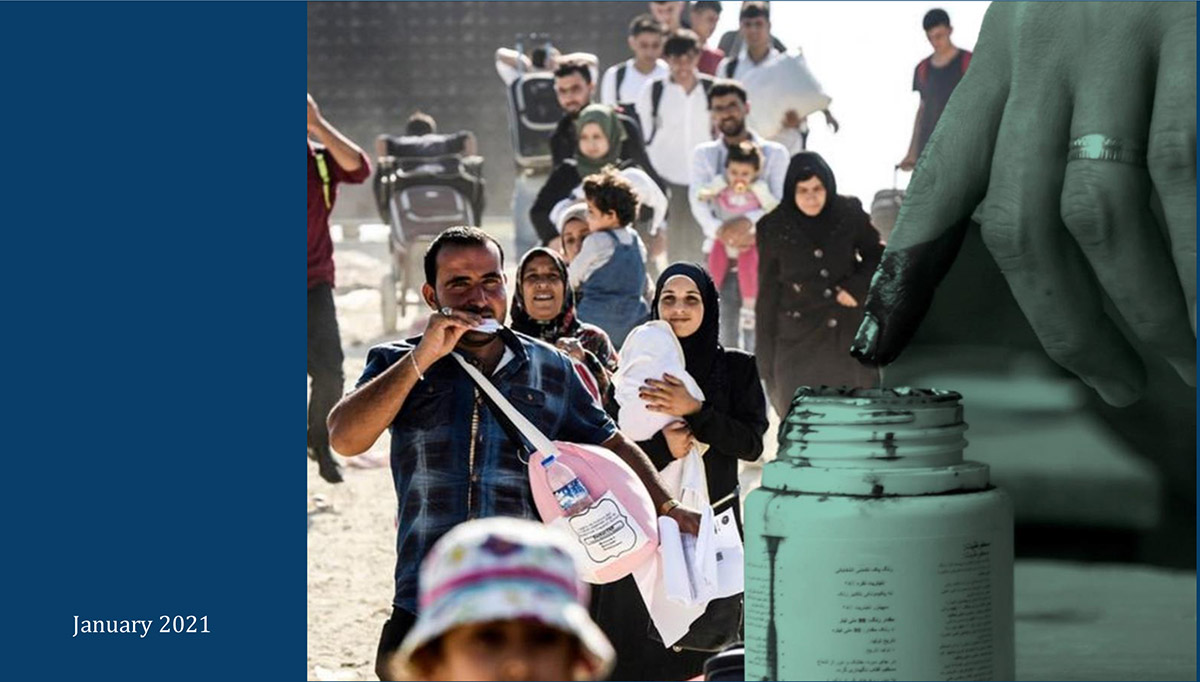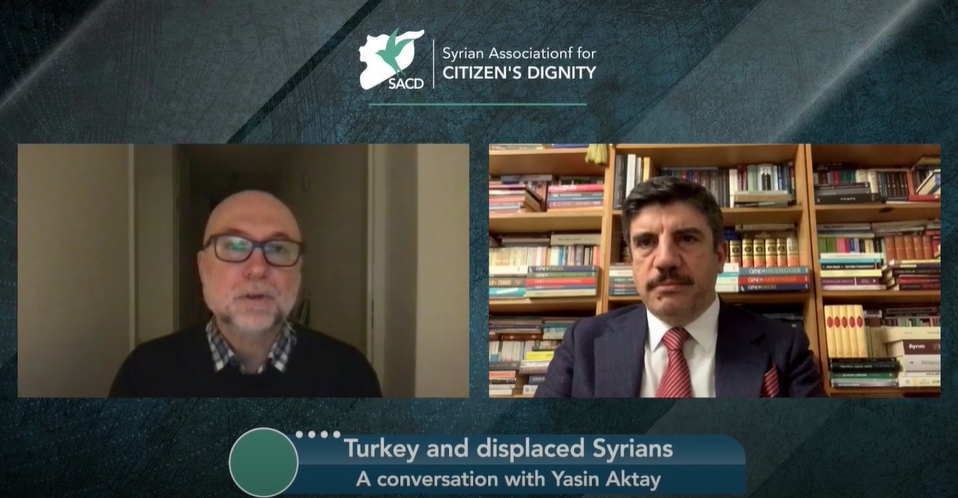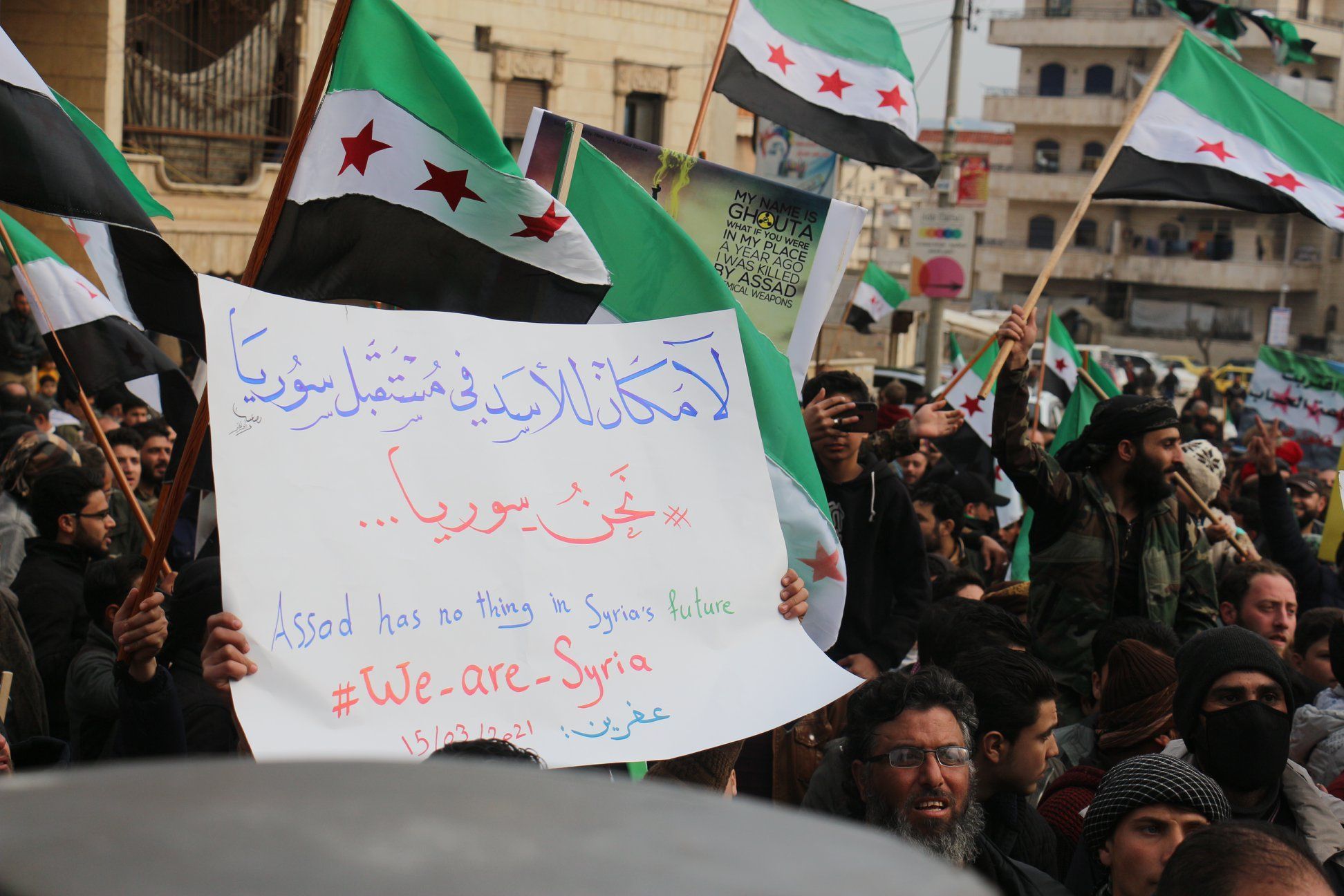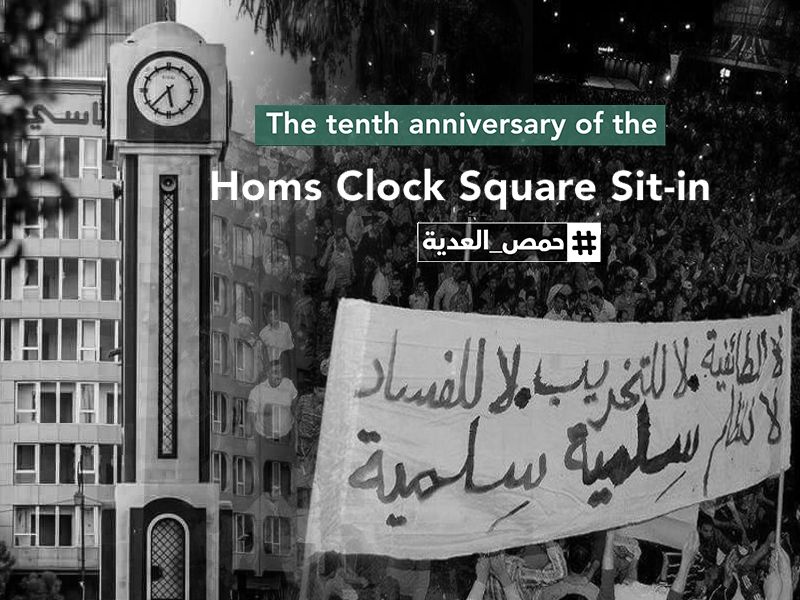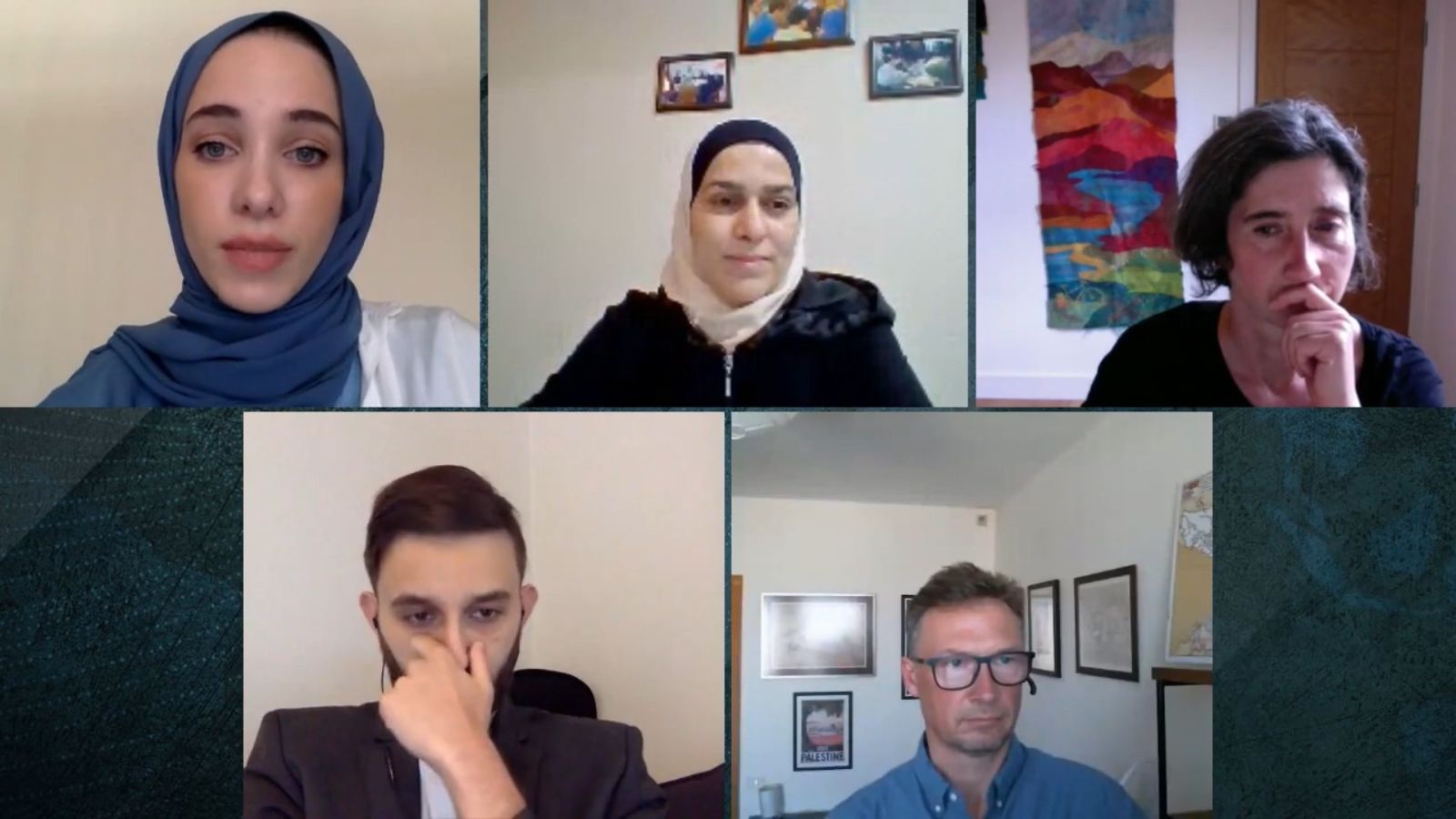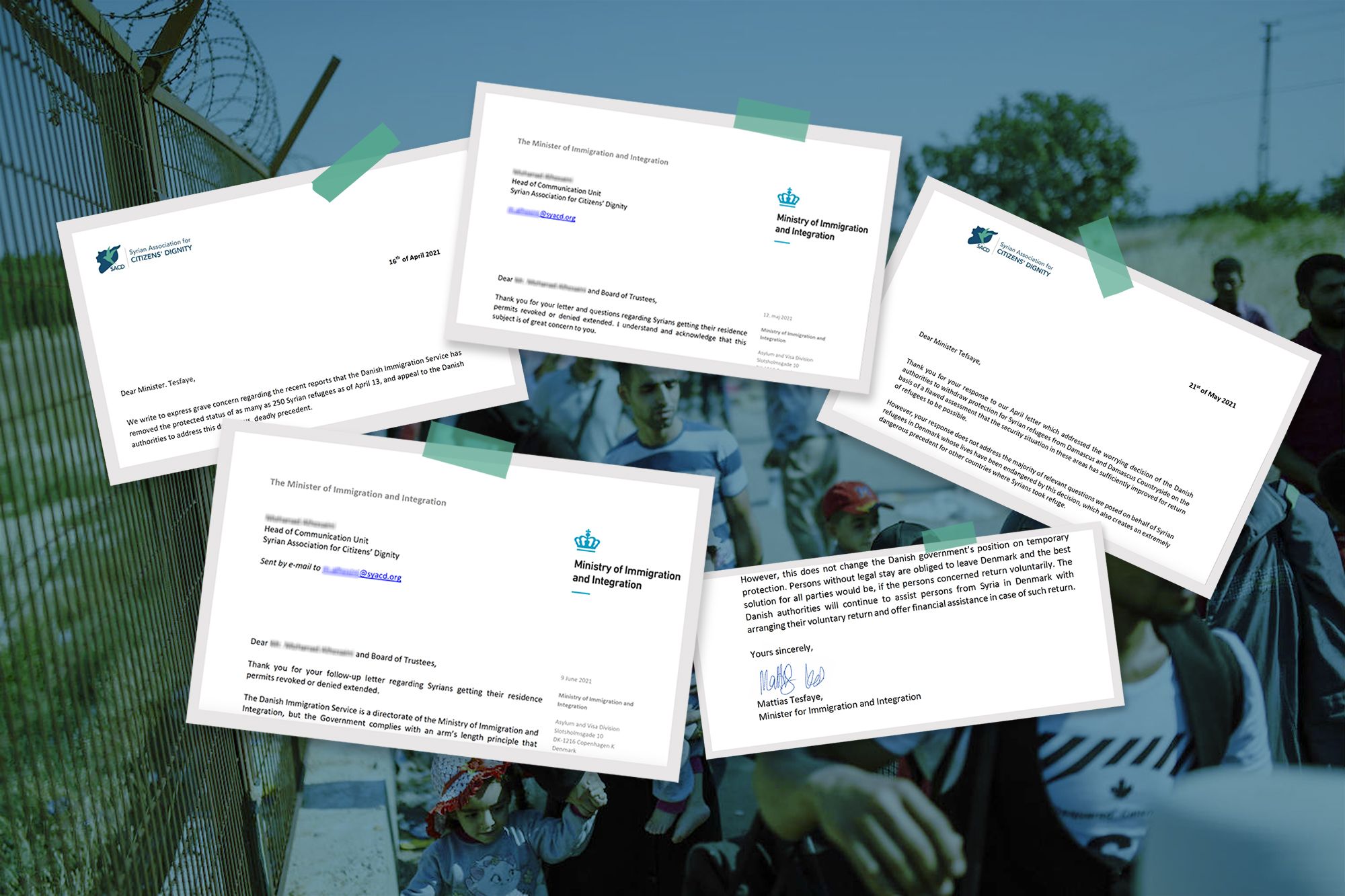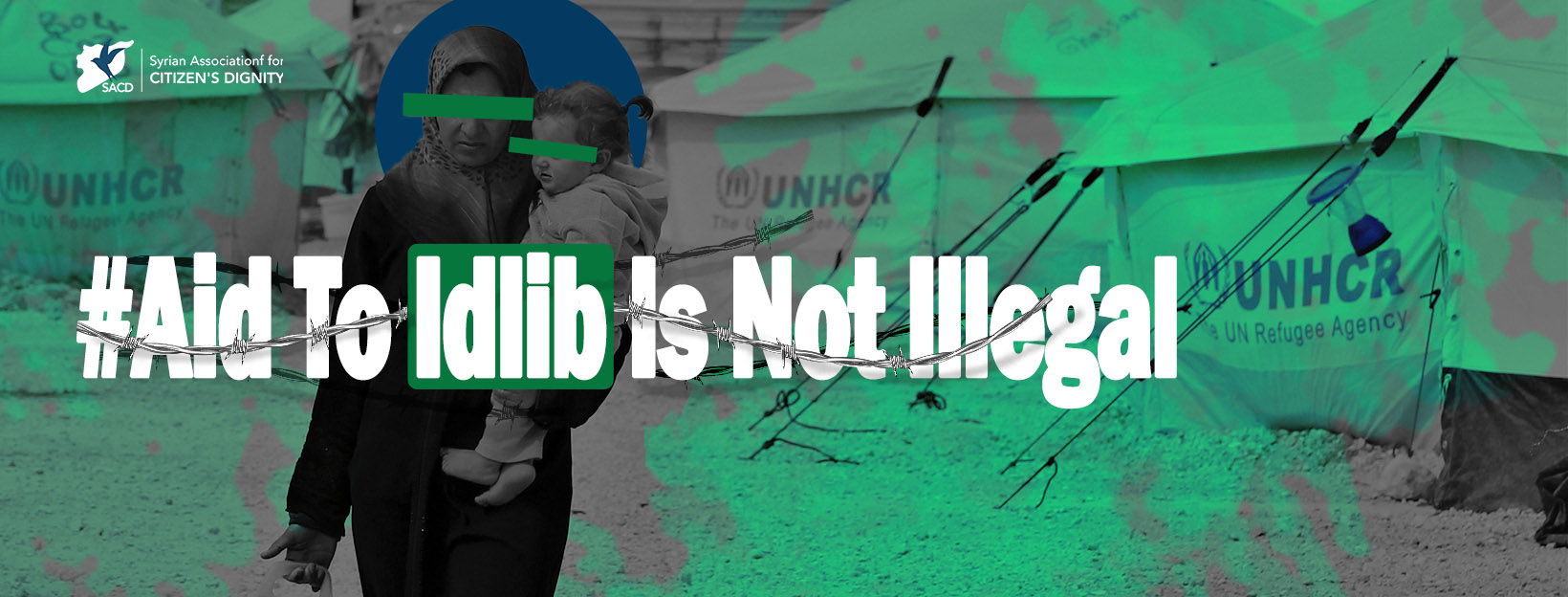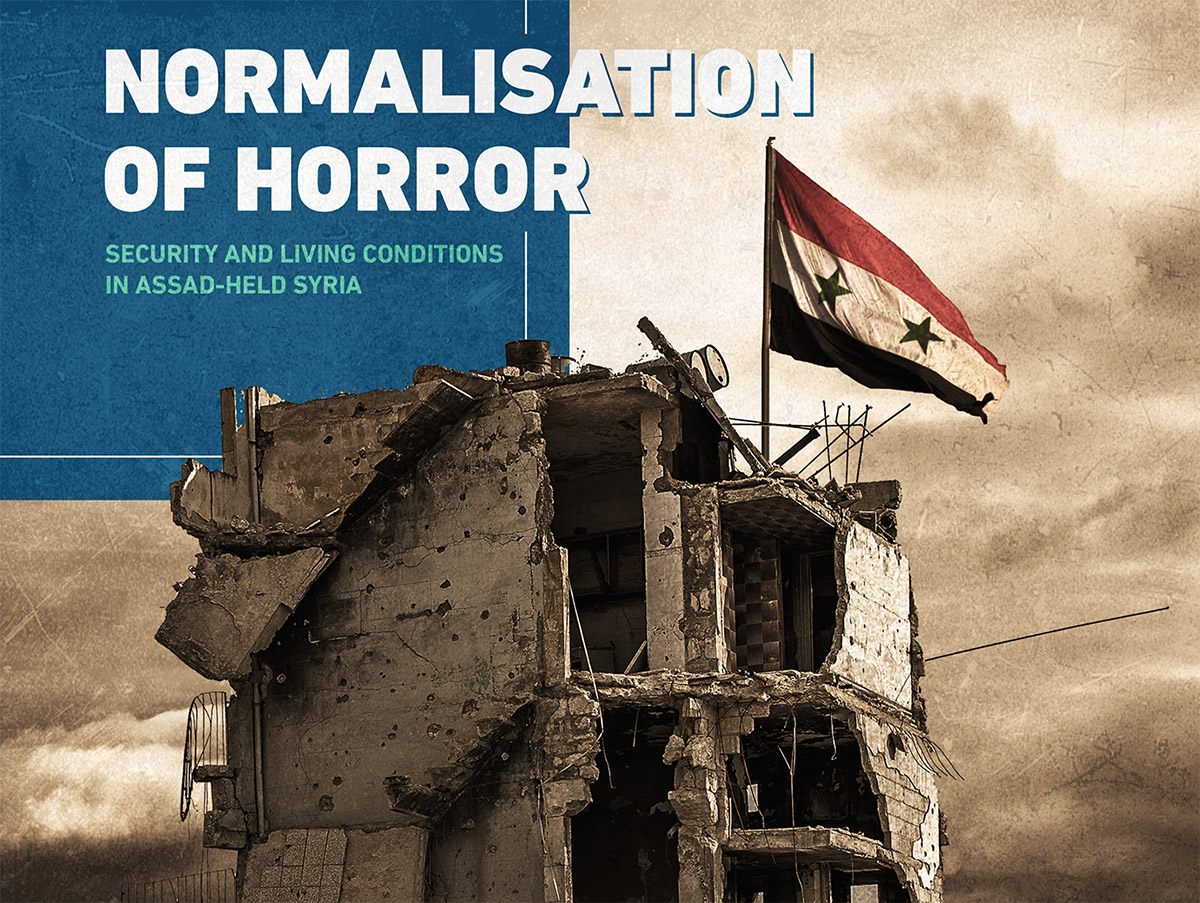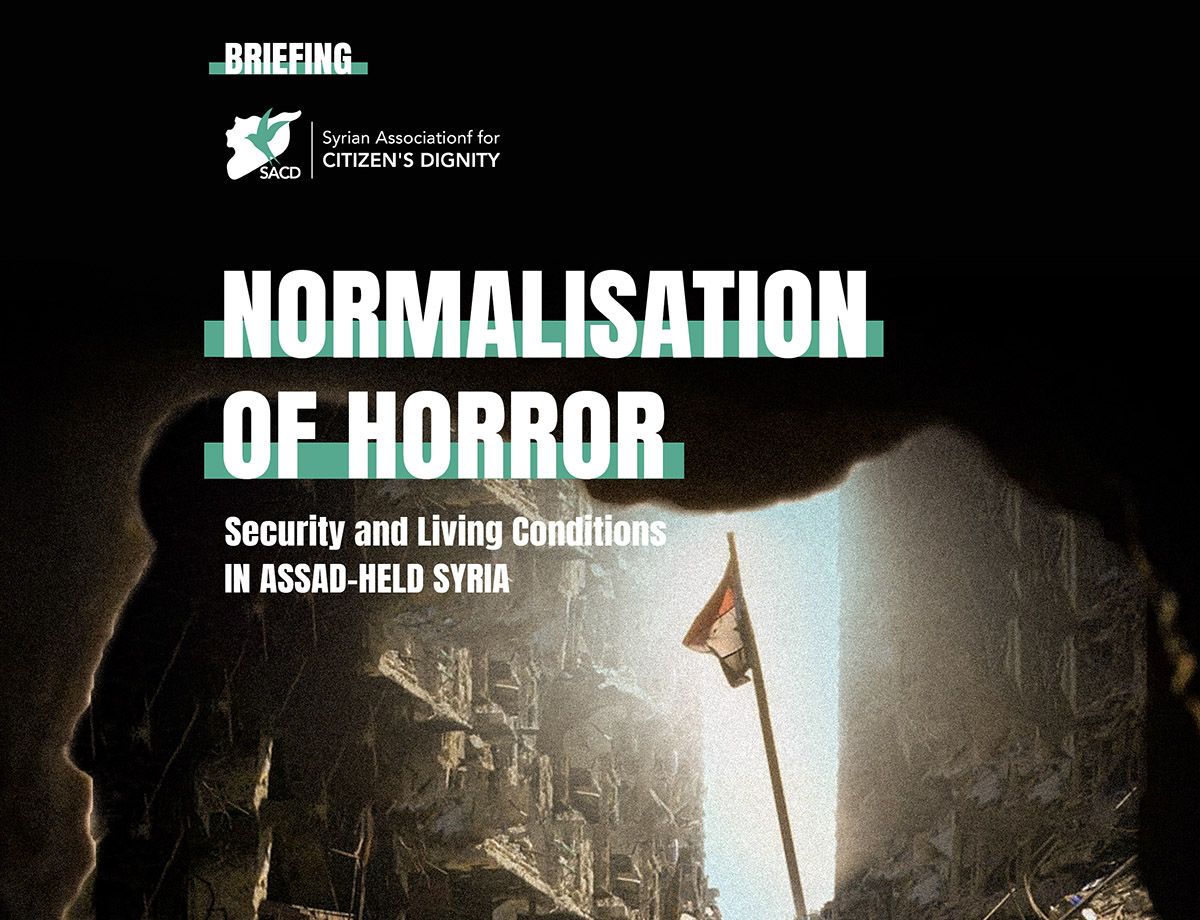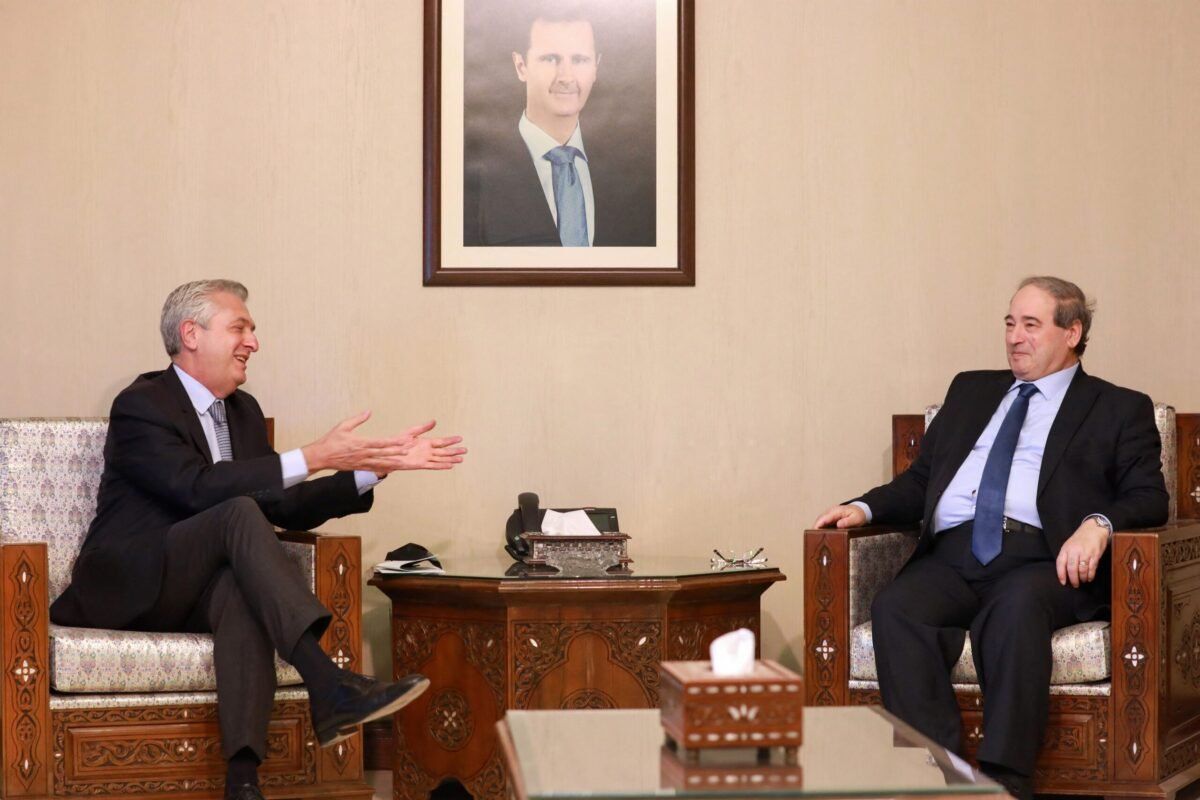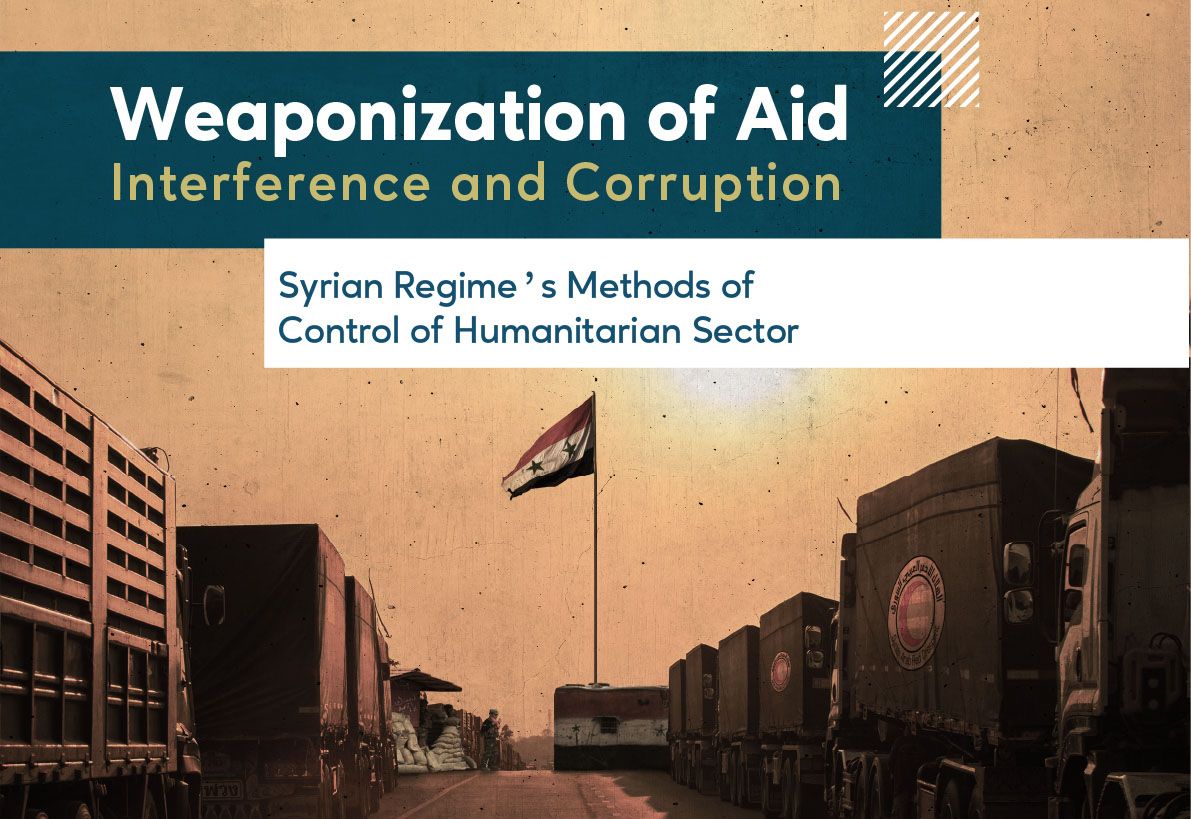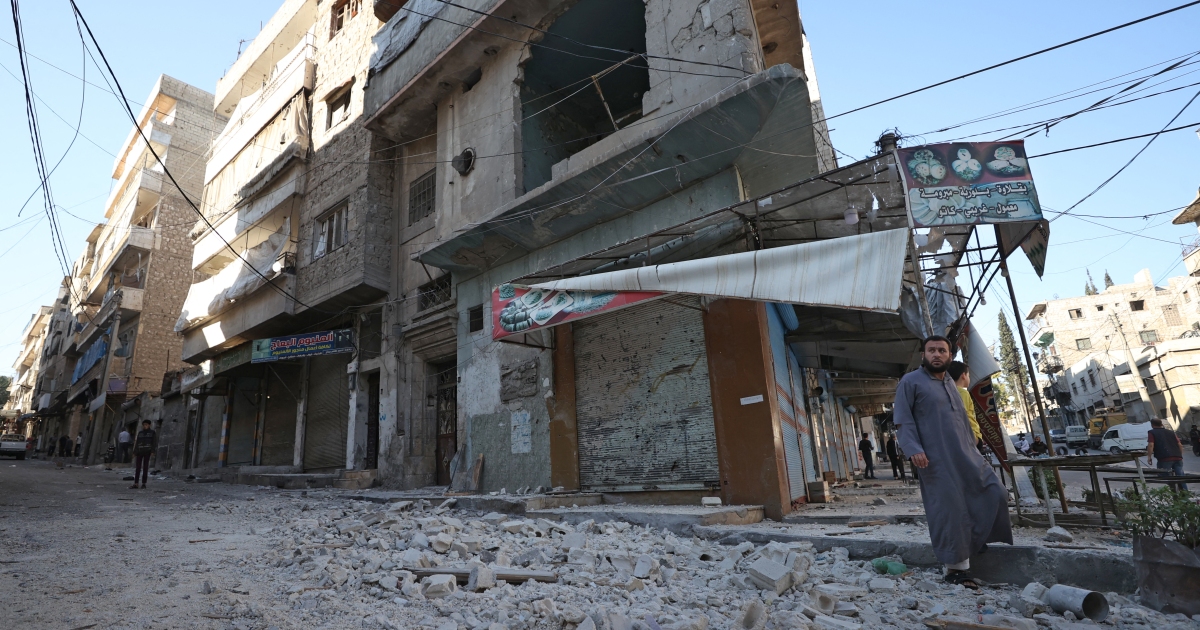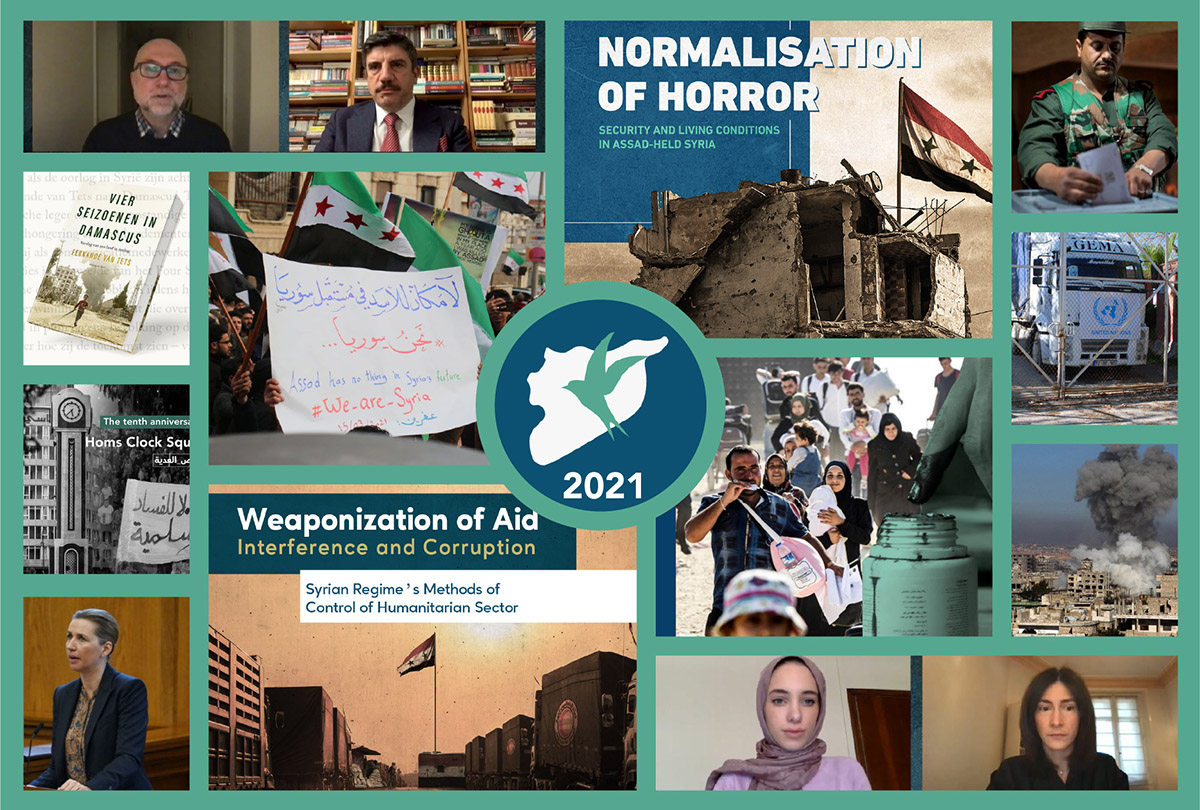
SACD in 2021: Hard Fight for Displaced Syrians’ Rights
2021 has seen SACD fully assume its position of a voice of displaced Syrians recognized in key decision making forums, with access and ability to make the policy makers aware of the position and rights of displaced Syrians when discussing policies that affect them.
We continued to struggle on several key fronts: documenting and reporting on the ongoing displacement, fighting premature return, establishing the concept of safe environment as the key precondition for safe and dignified return and any hope for a lasting peace in Syria and preventing normalisation of a regime that continues a systematic policy of displacement, repression and demographic change.
We strived to engage in all relevant forums, from the direct contact with diplomats and decision makers of key countries and institutions involved in Syria as a credible source of information and position on behalf of displaced Syrians.
Our ability to engage and mount impactful advocacy efforts was significantly affected by the ongoing Covid pandemic, but we persevered. The highlights of that work are presented in the review and include the effort to dispel any notion among the policy makers that elections are possible in Syria under the Syrian regime and in absence of a safe environment that not only guarantees the free and fair participation of all Syrians but also their safe return to their homes.
In 2021, SACD provided policy makers ample, ongoing analysis of the failure of the so-called reconciliation agreements as a model to be considered as relevant in the context of discussions on return. The most striking example of this failure, which continues to drive Syrians into displacement towards the North and further towards Turkey and Europe, is that of Daraa. The deteriorating security situation in Daraa illustrated the safe environment as defined by Russia. In that “safe environment” Syrians still suffer from murder, kidnapping, arrest, displacement and death while trying to flee.
Through a series of conversations with senior officials and experts, we strived to illuminate the Syria-focused policies of some of the key countries such as Turkey, Germany, Lebanon, and Denmark.
Denmark came into a sharp focus of our advocacy due to its flawed, inhumane policy of stripping Syrian refugees from Damascus and its countryside of protection under the explanation that it is safe for them to return. The policy remains in place despite the joint effort of SACD, Amnesty International, Human Rights Watch and other groups, which continue to document and inform the relevant actors that Syria, including Damascus, is far from safe for returnees.
SACD has invested significant effort to change the conversation on the delivery of aid to North Syria, which remains subject to open blackmail of Russia in the UN Security Council. In this effort, we secured support of leading international law experts to present an alternative to the current status quo which allows for a brutal weaponization of aid against the most vulnerable among the displaced Syrians.
SACD continued to lead on providing a deep, detailed insight into opinions and perceptions of Syrians living under the Syrian regime and documenting a reality in which horror of repression has been normalized.
Unfortunately, one of the main fronts where we needed to intervene and dismantle the narrative of normalisation of the Syrian regime as a “guarantor of security” to returnees was that of public statements given by the most senior UNHCR officials in Syria.
The intensifying efforts of some countries and international institutions to normalize the Syrian regime in a situation where it continues to repress, murder, displace and torture countless Syrians, have also become the subject of our advocacy effort. One of the key puzzles in that picture is the role of the UN and international aid agencies in Syria. We have engaged some of the most senior policy makers in relevant countries and institutions on the issue, seeking greater transparency of the oversight mechanism which is supposed to ensure the end of corruption and the regime’s control of the aid sector in Syria.
In 2022 we will continue to face enormous challenges as the world continues to turn its head away from the plight of the Syrian people, and displaced Syrians in particular. But, as before, we commit to strive to do even more and to elevate the rights of displaced Syrians to the top of the agenda in all conversations on the future of the country. We will fight for the rights of displaced Syrians everywhere, for a safe environment for all Syrians in Syria, for the right to a safe, dignified and voluntary return, for the displaced Syrians inherent right to define the conditions of return, against premature return and against any decisions harmful and detrimental to the rights of displaced people. We are committed to the cause of millions of displaced people who may have lost everything, but will never give up on their dignity and rights. We will continue to build a powerful movement which will make sure that no decision is taken in our name, without our voice being heard and taken into account. For we are Syria.
SACD in 2021: The Timeline
- January
- February
- March
- April
- May
- June
- July
- August
- September
- October
- November
- December
-
- January 2021
By the end of 2020, the Syrian Association for Citizens’ Dignity (SACD) published one of its most important briefings yet about demographic change in Syria, examining the impact of forced displacement on various Syrian communities and the role and the goals of regime in cementing of their displacement. The briefing aimed to highlight some of the key elements of regime policies of demographic change and illustrate its impact on the affected communities, as well as discuss ways to reverse these changes.
It is now clear that for the Syrian regime and its Iranian and Russian allies, the forced displacement of millions of Syrians since 2011 is not a mere consequence of the conflict, but a systematic policy to achieve their strategic goals.
We marked the anniversary of 15 Jan 2013, when residents of Aleppo were shocked by the detonation of a missile at the University of Aleppo. Another hit the university housing, crammed with displaced people. Dozens were killed on the spot, hundreds wounded. SACD published an article to remind the world of the Assad crimes in Syria and its indiscriminate and systematic targeting of civilians and civilian infrastructure.
On 18 January, the UN Human Rights Council discussed Lebanon’s record on human rights. Lebanese government in its National Report for the 2020 UPR addressed the living conditions of Syrian refugees in only three paragraphs. SACD published an analysis that explains the reality of the situation of the Syrian refugees in Lebanon.
SACD, alongside 30 local and international organizations, signed a letter addressed to the UNHCR and the international community calling upon them to exercise their power to prevent the forced return of Syrian refugees under duress or pressure from Lebanon to Syria and protect them from refoulment.
SACD was adamant in refusing any elections held under the Syrian regime in absence of any safe environment that not only guarantees the free and fair participation of all Syrians but also their safe return to their homes. Hence, in January, SACD published a 12-page briefing, complemented by a survey of 500 displaced Syrians, which illustrates a key point: fair and free elections are impossible without a comprehensive political solution and a safe environment for all Syrians. Under the hashtag #TheIllegitimateSyrianElection, the Association also participated in a global campaign where Syrians from all over the world refused the sham elections
At the end of January, we highlighted the plight of displaced Syrians enduring the harshest winter conditions hitting north Syria in every January of every year. Thousands of families living in camps in Atma in northern Idlib, displaced as a result of the Syrian regime’s criminal attacks, still refuse to return to live under the regime and would rather live in makeshift camps and endure the harsh winter conditions than enduring the regime’s killings and torture.
-
- February 2021
Three years after the Syrian regime concluded the reconciliation agreement with the opposition forces in Daraa it keeps breaching it on various fronts. These breaches revealed that the Russian reconciliation agreements have continuously failed to deliver the security and peace promised by the regime.
In February we analyzed how the deteriorating security situation in Daraa best illustrates the “safe environment” as defined by Russia, and what reality for all of Syria would be if Russia was to “guarantee” safe environment for millions of displaced Syrians.
In February we launched a series of conversations with current and former officials and experts from countries whose policies have major impact on displaced Syrians, seeking to illuminate some of the key policies, decisions and plans of these countries.
In the first such interview, Yasin Aktay, a sociologist, social activist, Deputy Chairman of the ruling AK party in Turkey, and chief advisor to the President of Turkey, Recep Tayyip Erdogan, explains Turkey’s position on a number of issues impacting displaced Syrians, including the prospects of safe and dignified return to Syria, the integration of Syrians in Turkey, Turkey-EU relations on the issue of refugees, and Turkey’s vision of a political solution in Syria.
The Syrian Association for Citizens’ Dignity released a statement expressing serious concern at the actions of the de-facto authorities of the Syrian Democratic Forces (SDF) in Deir Ezzor, which are causing an increase in displacement and insecurity in the area. We noted with concern that the different protests in the region have now become interrelated and that the policies of the Autonomous Administration of North and East Syria in Deir Ezzor are increasing the fears among the local population in the area, pushing them to leave their towns and villages.
SACD asserted that the international institutions and key states involved in the area take note of the effects of the SDF’s arbitrary decision on forced recruitment of teachers in Deir Ezzor and other decisions affecting the local population adversely.
On the issue of the Syrian sham presidential elections, SACD’s Dr Marwan Nazhan wrote an article titled “Elections in Syria are science fiction without a comprehensive political solution” expressing how it is utterly pointless to discuss any elections held by the Syrian regime as anything but a macabre spectacle where masses are forced to participate in a farce orchestrated by a dictator and the system that keeps him in power.
In any country with minimal respect citizenship and human rights of its citizens, elections are the primary medium of expressing the will and the voice of the people. For decades, we Syrians have not had circumstances where elections would have any meaning beyond a false legitimization of the Assad regime, first Hafez and then his successor Bashar.
February 2021 marked the 39th anniversary of the notorious Hama Massacre and SACD published an article to commemorate the 39th anniversary of the massacre, and to remind the world why Syria will never be safe while the Assad regime is still in power. For ever since Hafez al-Assad came to power in 1970, the main features of the security policy used to consolidate his rule in Syria was to exclude all opposition voices and create a loyal militia as one of the main pillars of his rule. Hama province was one of the first Syrian governorates to suffer the effects of this policy built on the exclusion of the majority population in Syria and entrenchment of securitized, sectarian rule.
Moreover, SACD held an interview with Fernande van Tets, author of ‘Four Seasons in Damascus’ and former communications officer at UNRWA in Damascus, where she explained about UN’s role in Syria, the dilemmas it faces, and whether Syria is safe for return of the displaced. “Personally, I do not feel that any part of Syria is safe to return to at the moment. The protection thresholds for return that the UN set out in 2018 have not been met. The voluntary returns that have taken place show that it is not safe to do so”, van Tets said to SACD.
Finally, SACD expressed its concern over the Syrian parliament’s decision to pass an amendment to Decree No.11 of 2011 allowing foreigners with residency permits to own property, which raises concerns about Assad regime efforts to change the demographic reality in Syria to achieve its “useful Syria” goal.
-
- March 2021
Syrians have contradictory feelings in the month of March. On the eighth of March of 1963, the army seized power in Syria with a political cover from Al-Ba’ath Party and ended the democratic life in Syria, while on the fifteenth of March of 2011 witnessed the rise of the popular demonstrations calling for freedom and democracy, encouraged by the Arab Spring. This eventually turned into an armed confrontation in response to the brutal and unjustified repression by the regime, leading to the displacement of more than half of the Syrian people.
On the tenth anniversary of the Syrian Revolution, SACD took part in the global commemoration of the day Syrians took it to the streets to demand freedom and dignity.
On this day, SACD aimed to capture the voices of all Syrians, wherever they were, and convey their dreams of living with freedom and dignity in Syria. As such, our campaign focused on the “Syrian Dream” and “Karama” (dignity). Each voice, idea, and dream, is a pillar to create the safe environment Syrians aimed for from the very first day. This safe environment is the way for Syrians to achieve their goals and hopes they deserve and their rights with the dignity and freedom they have been struggling for during the last 10 years.
In March, SACD sought to illuminate international community’s inability to achieve a solution to end the Syrian tragedy. We also continued the series of conversations with current and former officials and experts from countries whose policies have major impact on displaced Syrians we set out to discuss some of the key policies, decisions and plans of key countries.
In a rich, candid interview, Dr. Bente Scheller, Director of the Middle East section in the Heinrich Boell Foundation, who has served in the German embassy in Damascus between 2002-2004 and has written extensively on Syria and the political aspects of the crisis, addressed a wide spectrum of issues, from the process of integration of Syrian refugees in Germany to the analysis of Germany’s vision for the safe and dignified return of displaced Syrians, while stressing that “Germany should think about integrating, not returning Syrian refugees.”
On the occasion of International Womens’ Day, SACD asserted that it is important to shed light on the plight of displaced Syrian women: What caused their displacement? Do they feel safe? Do they want return to their original homes? What needs to be done for them to have a safe and dignified return? Any political solution that does not take women’s specific perceptions into account, or that forces them into a return that is not safe and dignified, could generate strong push factors that drive secondary displacement towards perceived safety.
-
- April 2021
On the 18th of April, the Syrian Association for Citizen Dignity launched a public campaign to commemorate the first peaceful sit-in since the outbreak of popular protests more than ten years ago: the New Clock Square sit-in in Homs. Tens of thousands of demonstrators gathered in the main square of Homs and declared a peaceful sit-in, demanding Bashar Assad to resign after the funerals of a number of protesters were shot dead the previous day.
The commemoration of the Homs New Clock sit-in, the horrific massacre that followed it, and other painful events that the Syrian people have lived, confirms the commitment that our people will continue to pursue their goal of achieving a free and dignified life free of tyranny.
Four years after the signing of the “Four Towns Agreement”, the Syrian regime and Russia have not held onto their promises and obligations. A group of displaced Syrians from Madaya and Zabadani wrote an article explaining why they do not see any return reasonable or acceptable under the current circumstances. The safe return can only happen if there was reparation and compensation for the harm and loss the people endured, as well as the establishment of a safe and neutral environment, preceded by confidence-building measures such accountability for those who committed crimes and were involved, whether they are local or foreign officials, and the release of the detainees and reveal of the fate of the disappeared.
The month of April marked the third anniversary of the catastrophic and painful displacement of Douma. After the imposed siege that lasted for years and dozens of attempts by the regime to storm the region and end the presence of the opposition, the Syrian regime, with the support of the Russian forces, began a military campaign that lasted nearly two months. The Russian and regime forces succeeded in taking large parts of eastern Ghouta, which was controlled by opposition groups, and displaced its people to the opposition-controlled areas in northern Syria.
Mouaz Bowaydani wrote an article explaining that as long as Russia continues to support the regime of Bashar Assad, it is impossible to achieve a safe, neutral and appropriate environment for the dignified, safe, voluntary and sustainable return of the city’s displaced people to their homes and properties, as well as compensation and reparation for them.
Finally, SACD’s Haya Atassi held a conversation with Marie Forestier, researcher and advisor on refugee and migrant issues at Amnesty International on the latter’s report, which documented cases of Syrian refugees being arbitrarily detained on terrorism-related charges and tortured in Lebanon. The discussion revolved around the Lebanese state’s responsibility to protect Syrian refugees from being arbitrarily detained, tortured, and falsely accused of terrorism-related charges. It also held that the international community has a moral and humanitarian responsibility to protect Syrian refugees in Lebanon, in line with international treaties on torture, refugee protection, and the principle of non-refoulment.
-
- May 2021
The Syrian Association for Citizens’ Dignity dedicated the month of May to present how the regime-held presidential elections in Syria are a mere farce, lacking any legitimacy or credibility in the absence of a comprehensive political solution.
SACD published ten reasons extensively explaining why elections in Syria are impossible in the current circumstances. The reasons included constitutional, security and logistical impediments to the participation of not only displaced Syrians around the world, but also Syrians living inside Syria, both in opposition-held and regime-held areas. The Association also participated in a global campaign to express rejection of any elections held under the Syrian regime and in absence of a safe environment.
As part of SACD’s participation in the campaign refusing #TheIllegitimateSyrianElection, Dr Mazen Kseibi, member of SACD Board of Trustees sent a message reminding the world that “Tens of thousands of forcibly disappeared and detained Syrians, and millions of displaced Syrians, cannot vote in these farce elections.” Wassim Al Hajj, member of SACD Board of Trustees, also asserted “There’s no legitimacy to any elections without a comprehensive political solution that fulfills the conditions of the safe environment & removes the main cause of Syrian suffering, which is the Syrian regime.”
In past years, there has been a documented pattern of Syrian refugees in Lebanon being forced to vote ever since they fled Syria. Many fear backlash, or deportation, if they did not present and vote, which has become an existential issue for them.
Haya Atassi, from SACD’s public relations team, discussed this issue with Hanna Roberts, an elections expert working with IFES, Vladimir Pran, an electoral advisor, Kareem Chehayeb, a Lebanese journalist who covers Syria and Dr Hala Ghawi, member of SACD Board of Trustees. The discussion focused on the fact that Syria is far away from holding any free and fair elections, and that conducting credible elections in the current circumstances is just science fiction and impossible. Hence, these elections are just an illegitimate exercise in entrenching of the dictatorial rule of this regime.
SACD member Mounir al-Fakir, who is a a founding partner in the Association of Detainees and Missing Persons of Sednaya Prison and himself a former detainee at Sednaya prison, wrote on his dream of elections in Syria insisting that “talking about elections when there is not even a prospect of a safe environment for all Syrians is not only a waste of time, but in fact dangerous.”
Al-Fakir explained how there are several obstacles that need to be surpassed in order to hold free and fair elections, where Syrians are not only free to vote but also free to run for office. Such elections require a comprehensive framework that Syrians perceive to be legitimate, which can only be implemented as part of a comprehensive and sustainable political solution that guarantees a safe environment for all Syrians, including the displaced.
The month of May also witnessed a wave of public demonstrations erupting in various parts of Al-Hasakah governorate as part of inclusive and unique protests following Resolution 119 issued by the Executive Council for Autonomous Administration in Northeast Syria to raise fuel prices. These demonstrations resulted from poor living conditions, which include the lack of electricity and water, exorbitant food prices, administrative corruption, decision-making being in the hands of foreigner members of the SDF, and the disregard of the interests of Syrian citizens.
The Syrian Association for Citizens’ Dignity issued a statement stressing that this public movement is a dangerous indication of a situation that has been worsening for a long time, which will inevitably lead to more waves of displacement. Moreover, this situation is exacerbated by the return of ISIS influence in areas and towns under the control of the SDF. All this has been accompanied by the policies of the Autonomous Administration, which is based on corruption, suppression of freedoms and discrimination, while the original people of the region are still refugees in camps in northern Iraq, neighboring countries and Europe.
On the other hand, SACD has monitored the painful events that led to the displacement of Syrian citizens from the village of Um Batneh in al-Quneitra to northern Syria. SACD was keen on closely following up on the situation with the aim of compiling accurate information from eyewitnesses, and those directly involved, in order to understand the reasons behind their displacement from their original place of residence, as well as the circumstances that led to their arrival to northern Syria.
As a result, SACD issued a statement to strongly condemn the forced displacement carried out by the Iranian forces against the Syrians in the village of Um Batneh firstly by bombing the village and then arresting and extorting some of its residents. In addition, SACD denounced the way in which some factions of the Syrian National Army (SNA) treated the displaced who have reached the northern countryside of Aleppo, and reaffirmed that the crime of forced displacement against the Syrian people continues in Syria, and that the only solution to end the waves of internal displacement and asylum is to create a safe environment for all Syrians.
Nonetheless, SACD expressed its solidarity with the rights of Palestinians in Sheikh Jarrah and stressed that what’s been happening in Sheikh Jarrah in Jerusalem, capital of Palestine, is another example of the forced displacement that Palestinians and Syrians alike have been enduring for years, which shows the similarities between authoritarian Assad regime and Israeli Occupation.
-
- June 2021
On World Refugee Day, the Syrian Association for Citizen’s Dignity published a detailed overview of how Denmark’s decision to withdraw protection for Syrian refugees from Damascus and its countryside is in breach of Article (3) of the European Convention on Human Rights, UNHCR’s protection thresholds on return and the official position of the European Commission.
The published materials detail the exchange between SACD and the Danish Minister of Immigration and Integration, Mattias Tesfaye, initiated by our efforts to provide evidence that Syria is not safe for returnees, contrary to the assessment of COI reports by the Danish Ministry of Immigration and Integration and the Danish Immigration Service.
SACD invested significant efforts in advocacy with Denmark authorities and concerned EU bodies to relay how dangerous Danish decision to strip Syrian refugees from protection is and explaining the danger awaiting Syrians should they be forced to return back to an unsafe Syria.
In addition, the Syrian Association for Citizen’s Dignity joined 124 Syrian organizations and networks to reiterate that there is no alternative for the cross-border modality in Syria. All signatories called on the United Nations Security Council member states to renew their commitment to the neutrality of humanitarian assistance and to renew the cross-border resolution.
SACD published true stories among hundreds of stories that document the oppression and harassment faced by Syrian refugees who were forced, due to hard living conditions, to return to areas under the control of the Syrian regime, where one of the returnees warned: “This is a criminal regime that never keeps its promises… Beware, no one should ever believe their words.”
Ghassan Rahmi explains the politics which led to Denmark’s inhumane policy on Syrians and warns that “If the world remains silent, some 35000 Syrians will be in risk of splitting, losing their livelihoods or being forced to flee again. This time with nowhere to go.”
Eight years after its fall, a city in the southern countryside of Homs, Al Qusayr, became Hezbollah’s gateway to Syria and a launching pad for its operations in the country, as well as a most blatant example of the participation of regime’s allies in the policy of demographic change.
-
- July 2021
During the month of July, SACD worked to move the conversation on humanitarian aid to north-west Syria away from the Russian blackmail at the UN Security Council, clearly demonstrating there is every moral, political and, most importantly, legal argument for the aid to Idlib to continue even if the UNSC approval is withheld. SACD addressed the UN Emergency Relief Coordinator and key states involved in discussions on Syria with reasons as to why such aid is legal, and presented its recommendations on the issue.
In addition, SACD supported dozens of Syrian organizations who formed a human chain near Bab al-Hawa crossing in support cross-border aid resolution renewal. The closure of this crossing will cause an unprecedented humanitarian crisis and displacement towards Europe and Turkey. The Association also held a campaign under hashtag #AidtoIdlibIsNotIllegal to assert that humanitarian aid is an indispensable rights to all Syrians and must not be politicized nor compromised.
Toby Cadman, one of 35 international law experts who in 2014 issued an opinion which establishes why the UN SC approval is not a condition for the aid to opposition-held areas of Syria to be legal, spoke to SACD in support of its advocacz on the issue. In a conversation with Refik Hodzic, he reiterated this position, speaks about the need for greater transparency of the UN OLA and explains the political nature of the paralysis which threatens millions of lives in northern Syria.
In a similar conversation with Rebecca Barber, an Australian scholar of international law, we discussed the sources of assumption that the UN SC must approve cross border aid to Idlib, and alternative approaches that could end Russia’s chokehold threatening more than 3 million people with starvation.
Amid the horrifying events taking place in Daraa and Idlib, the Syrian Association for Citizens’ Dignity called on the key countries and the United Nations agencies involved in Syria to urgently elevate the issue of displacement of Syrians and the creation of a safe environment for their safe, voluntary and dignified return to the top of the political discussion on the future of the country.
The deteriorating security situation in Daraa illustrated the safe environment as defined by Russia. In that “safe environment” Syrians still suffer from murder, kidnapping, arrest, displacement and death while trying to flee. Daraa continues to show a microcosm of what the reality for all of Syria would be if Russia was to “guarantee” safe environment for millions of displaced Syrians.
Ironically, while the Assad regime and Russia are talking about the return of displaced Syrians, the regime was forcing Syrian citizens to leave Daraa to north Syria, while bombing north Syria and forcing already displaced Syrians to flee to Turkey and Europe.
-
- August 2021
In August, the Syrian Association for Citizens’ Dignity published a briefing on its latest 91-page report on security and living conditions in Assad-held Syria, which sums up the outcomes of 533 interviews with Syrians living under Assad in different governorates, and comes as the fourth such report tracking perceptions and attitudes of both displaced Syrians and those who never left their areas.
This report is yet another contribution by SACD to the ongoing effort to shrink the space for denial of the reality of the dire state of affairs in Syria among the relevant policymakers. The fourth such report issued by SACD, it offered an insight into the views and perceptions of Syrians on some of the most relevant issues that must shape any conversation on the possibility of a safe, voluntary and dignified return of displaced Syrians and the eventual political solution that could offer a hope of a lasting peace in Syria.
The report refuted any argument that claims Syria is safe. The absence of military operations is in no way an indicator of safety, as the security authorities grip and the high crimes rate makes Syrians feel less secure than ever. And Daraa is a living example.
Ten years into the Syrian conflict, the Syrian society is disintegrating further and deeper with each passing day of the continuing displacement of more than half of its population, the continuing and increasing repression and corruption of the Syrian regime, fragmentation of the country as various state and non-state actors seek to cement their presence and influence, and the complete collapse of the political process.
Syrian refugees in Lebanon are often scapegoated as a key reason for the government’s inability to deal with the mounting crisis. The Lebanese government has recently announced a plan to organize the return of Syrians, claiming that Syria is safe for returns. Yet forcing Syrian refugees to return violates the universal principle of non-refoulement and sends them back to an unsafe, life-threatening Syria. The dehumanization and discrimination against Syrian refugees in Lebanon, and elsewhere, must end. Syria is not safe for any returns. Refugees are humans who deserve the right to live with dignity and safety.
The practices by Assad regime in Syria to seize properties of absentees, most recently in Deir Ezzor, particularly owned by displaced people, became “de facto” as a result of the lack of seriousness of international community in dealing with this crisis. Diaa Abu Zaid, member of SACD’s Monitoring Unit, wrote an article explaining how these arbitrary measures allow the regime to consolidate its policies and give it the appearance of local legitimacy after the theatrical play of the last presidential elections, resulting in more obstacles to achieving rights of displaced people.
Campaigns of arrest and enforced disappearance are still ongoing in Syria, including against those covered by “reconciliation agreements” and those who have been included in regime-issued amnesty, highlighting a lack of any kind of security guarantee in Syria. What is happening in Daraa right now is a live example of the failure of these “reconciliation agreements” on Russia and the regime’s behalf, and their lack of commitment to building any confidence measures. One of the main key findings in SACD’s latest report indicated that Syrian regime’s and Russian guarantees mean nothing in practice.
The Syrian Association for Citizens’ Dignity announced on August 28th the formation of the Hasaka Governorate Assembly, which is the 7th SACD assembly among other assemblies that constitute the body of the Association.
On the International Day of the Disappeared, we remembered all Syrians arbitrarily detained and forcibly disappeared by Assad forces. Thousands of Syrian families have been living in unbearable pain for past years with no closure on whereabouts of their loved ones.
-
- September 2021
The Syrian Association for Citizens’ Dignity called upon the United Nations in Syria and the Syrian Arab Red Crescent to immediately cease all plans to transfer displaced Syrians from Rukban camp to areas under control of the Syrian regime. While Syrians living in Rukban camp endure extremely harsh living conditions, returning them to areas under Assad control poses serious threats to their lives such as unlawful killings, forced disappearance, arbitrary arrest, extortion and harassment. Our message to the UN and SARC was that they must uphold their responsibility as international institutions not only to provide immediate and urgent relief aid but also to protect lives.
At the same time, contrary to information provided from the ground by a large number of Syrian and international organizations, the Danish government continued to claim that Damascus and its countryside are safe for Syrian refugees to return.
This policy targeting Syrian refugees is based on the incorrect assessment of the Danish Immigration Service (DIS) that “the security situation in Damascus and rural Damascus has improved significantly”, resulting in cancellation of the protection of Syrians originally from Damascus, leaving them with a choice of internment or return to an unsafe Syria.
The Syrian Association for Citizen’s Dignity has shown in its latest survey report, Normalization of Horror, that areas under Assad control are very far from being a safe. While Denmark’s policy failed to document and relay the real threats facing refugees if they were to return, it is forcing Syrians to make the choice of returning back to an unsafe Damascus. However, safety in Syria cannot be compartmentalized. Nowhere in Syria is safe.
People think it’s not safe for return, but think return is a necessary for the future for the country and any political settlement. SACD’s latest survey report, Normalization of Horror, has shown that only 26 percent of participants recommended displaced people to come back to regime-controlled areas and approximately half of participants are seeking to leave such areas; there is still an overwhelming belief in the need for displaced people to come back and play a major role in the reconstruction and stabilization of the country. 70 percent of the participants think that the return of the displaced is a prerequisite for Syria’s recovery.
As if the Syrians’ suffering cannot become worse, the Covid-19 catastrophe happening in Idlib came at a devastating time as the Syrian regime and its allies intensified their attacks, killing and wounding dozens of civilians. The survey report from September found that 58 percent of those infected with the virus did not receive the necessary health care, where respondents indicated that they cannot access appropriate medical care due to high costs and restrictions.
-
- October 2021
In October, Syrian Association for Citizens’ Dignity responded to UNHCR’s head Fillipo Grandi’s scandalous statements made during his mission to Syria. In the first he openly admitted that UNHCR is coordinating with the regime of Bashar al Assad on the return of displaced Syrians and the creation of conditions for return of Syrian refugees from abroad. In the second he went even further, explicitly placing the faith in the Syrian regime to ensure security for returnees.
In response forwarded to representatives of key countries and institutions involved in Syria, the fourteen members of the SACD Board of Trustees wrote: “We aware that the horror and shock of the millions of Syrians are easy to ignore for most of the decision-makers drunk on the supposed supremacy of realpolitik over the notions of justice and rights. However, we must ask the question: what do those who think that normalisation of Assad is the solution to the Syrian nightmare believe will happen as a result?
The UNHCR must cease the misleading messaging on the “improving security situation” for returnees. It must improve communication, information, and counseling with displaced Syrians to ensure they are aware of all factors and conditions that might impact their returns decisions. Syria is not safe under the Assad regime. Syria is not safe for any returns.
On October 20, children on their way to school were attacked in Ariha with scores of civilians killed and wounded. Most of the people in Idlib are Syrians displaced by the Syrian regime, which together with Russia continues such attacks on daily basis. SACD expressed its shock that UNHCR ignored this reality and continued to send messages which can lead displaced Syrians to believe that security conditions exist for their return. Nothing could be further from the truth.”
Six years since the Russian intervention in Syria, an intervention the Syrian regime and Russia like to term as “war on terror”, have shown that the intervention was never anything but a war on the Syrians themselves.
SACD published an analysis detailing how the latest agreement signed in Daraa is yet another example of the forced displacement in Syria perpetrated by Syrian regime and its Russian and Iranian allies to establish the goal of ‘useful Syria’ regardless of how outrageous and inhuman the price is.
The decision by the Interpol to lift the corrective measures imposed upon the Syrian regime a decade ago came at a time when international reports are being issued documenting the hideous violations the regime commits against Syrian returnees. The Syrian Association for Citizen’s Dignity warned against the potential danger of readmitting the Syrian regime into Interpol for the imminent threat such move could cause upon 6.8 million Syrian refugees and asylum seekers.
SACD trustee Wasim Alhaj sent a message from Al-Hurriya hospital in Marea in north Aleppo warning against the imminent and catastrophic collapse of health system in north Syria due to spike in COVID19 cases: “Out of 4 million population, at least 750,000 cases have been recorded so far.”
-
- November 2021
The overwhelming impression obtained from SACD’s latest report published in November, based on interviews with 45 employees of 29 organisations operating in Assad-held Syria, is that the relationship between the Syrian regime and humanitarian organisations and agencies goes beyond regime interference. There instead appears to be a somewhat symbiotic relationship in which the regime, through different bodies and figures, controls the decision-making process and defines the “red lines” for these organisations, and has considerable influence over determining the beneficiaries.
Throughout the 10 years of conflict in Syria, there has been constant discussion and doubts regarding whether the international aid sent to regime areas was being delivered to the right beneficiaries. Some testimonies and evidence have suggested that some UN aid to Syrians in regime-controlled areas ended up with the regime’s military forces or allied militias.
In the conversation with representatives of some of the key countries and institutions involved in Syria about the findings of the report, SACD has welcomed the establishment of a regional oversight mechanism established to eradicate corruption and misuse of aid in the UN and other humanitarian organisations operating in Syria and called for increased transparency of the process.
In November, the Syrian Association for Citizens’ Dignity (SACD) organized an event that focused on the one common finding among all recent reports by UN COI, HRW, Amnesty International, SNHR and SACD which explicitly state that Syria is not safe for any returns. This event discussed how to, despite all challenges, make concrete steps to prevent premature return from hosting states, to maintain protections for Syrian refugees in the face of reality in Syria and address the worrying trend of gradual normalization of the Syrian regime without measures to stop and achieve accountability for its criminal policies.
The Syrian regime and its backers have for over a year now claimed that Syria is safe – and some European tour agencies have started taking bookings for tours next year, after the regime started issuing tourist visas in October. Various other developments, from readmission to Interpol to diplomatic visits and problematic statements of senior UN officials, speak of the creeping normalization of the regime. Return of displaced Syrians seems to be the next target in this dangerous process.
Yet the world must never forget that Syria, despite Russian propaganda and groups touring the country amid people who may simply “disappear” if they or their relatives say something not pleasing to the regime, is not safe and is unlikely to be so any time soon.
The Syrian Association for Citizens’ Dignity expressed its concern over deportation procedures of Syrians who have sought refuge in Turkey after experiencing horrifying threat to life in their country. Sending Syrians back to Syria at this time amounts to refoulement, which is contrary to Turkish law and international conventions to which Turkey is a signatory, as it puts their lives at grave danger.
In Denmark, Syrians continued to find themselves targeted by the policy are being forced into detention centers, their lives destroyed, families separated, placed under pressure to return.
One such case is that of Abdel-Raouf Ahmed, who is currently residing in the refugee deportation center in Denmark, who agreed to talk to us about the conditions surrounding him and other Syrian refugees in the deportation centers.
-
- December 2021
As more than 13 million displaced Syrians continue to suffer harsh living conditions and uncertainty, the apparent steps by sections of international community to normalize the repressive regime of Bashar Al Assad are resulting in a split reality: on one hand that in which returnees to Assad-held areas are subjected to torture and enforced disappearance, women and children in refugee camps in the north dying under indiscriminate bombardment and refugees in increasing number of countries facing a premature, forced return; and the other in which the regime and its backers are organizing return conferences and the senior UN officials openly promoting dependence on the regime to “ensure security” of returnees.
The world must never forget that Syria, despite Russian propaganda and groups touring the country amid people who may simply “disappear” if they or their relatives say something not pleasing to the regime, is not safe and unlikely to be so any time soon.
On the other hand, about two months after the Daraa agreement, which stipulated the withdrawal of medium and light weapons from the city, major concerns have been raised over the security of those wanted by the regime as well as those who have joined the regime forces.
Evidence clearly shows that the Syrian regime, alongside its Russian and Iranian allies, does not aim to use “reconciliation agreements” to establish an environment suitable for the return of the displaced people, but rather to secure full control of the territory with negligible numbers of the original population. The model applied in the south and its resulting effects, confirm once again that the reconciliation model orchestrated by Russia and the Syrian regime, with the support of Iran, is very far from attaining any peace and stability in the region.
The Syrian Association for Citizens’ Dignity reminded the UN special envoy for Syria and key states working on the political solution that establishing a safe environment, under robust international guarantees, must be the first priority and is an absolute pre-requisite for a safe and dignified return of more than 13 million displaced Syrians who form the majority population of the country.
UN special envoy and key states involved in the apparently ongoing deliberations on return must not ignore the voice of displaced Syrians in this discussion crucial to the future of Syria. Doing so would be a dereliction of duty to the existing legal framework and to the displaced Syrians, and would inevitably render any decision on return meaningless and counter-productive.
“Feeling safe is dependent on more than one aspect. We fear sudden bombing by [Syrian] regime. We fear deterioration of life quality. And we also fear of leaving the house by demand of the house owner.” These were the words of Wajdi Al-Jasem, a Syrian from Deir Ezzor, who has been displaced several times and eventually ended up in Idlib.
Feeling safe and the definition of safety in a specific place and time, is a very tricky topic when in it comes to the refugees’ subject. Many people think that safety in Syria means the end of war or the end of a direct life-threating situation. Many governments think that they have the right to judge if Syria is safe or not based on their own perspective that they obtain from data.


